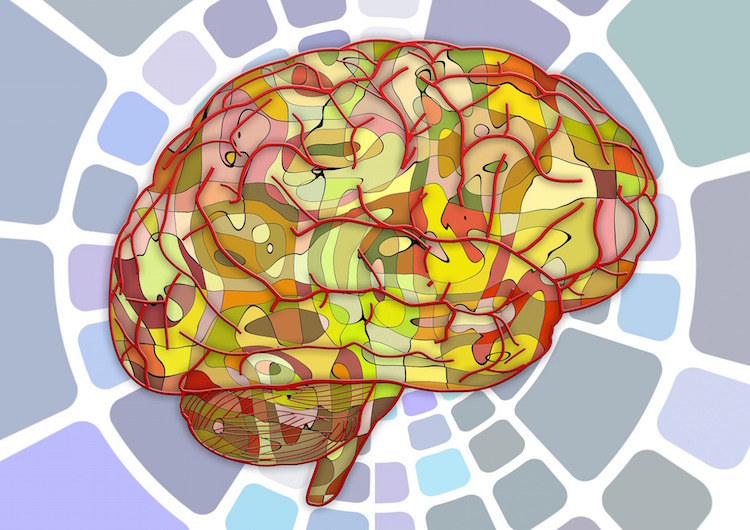Keeping your brain healthy takes some work, but it is not as difficult as you think. Once you know the steps you can take to keep your brain at optimal health over time, you won’t have any problems maintaining it. Here are five ways to make sure your brain stays healthy no matter what happens in your life.
Manage your stress levels
We all get stressed many times throughout any given week or maybe even multiple times throughout the same day. A little stress here and there is good for us: it keeps us motivated and gives us a much needed incentive to continue working toward our goals. Too much stress, however, is bad for our health in more ways than one.
High stress levels can do serious damage to your brain over time. Chronic stress is something that happens when you do not actively manage your stress levels, which occurs for many reasons. Often times, you don’t even realize how negatively stress is impacting your life until side effects begin to present themselves in your life.
Keep your professional life organized and always make sure to leave room for plenty of relaxation time. If you feel yourself becoming too stressed, take some time to evaluate whether or not there might be something taking up too much of your time that you can step away from and/or hand off to someone else to take care of instead.
Exercise on a regular basis
If you are someone who does not like even the idea of exercising at least three times per week, or at all, you might want to do something about changing your habits and attitude. It turns out your brain needs you to exercise just as much as your heart, bones and muscles do.
Exercise isn’t good just for your physical health, though that is important too. Regular exercise is also a must for maintaining optimal brain health. It promotes blood flow to your brain, helps reduce stress and anxiety and even helps you to maintain better focus on certain activities over time.
The most important thing to do when establishing a brand new exercise routine is to choose a physical activity that you will actually look forward to doing. Not only does this allow you to have more fun, but it also makes you much more likely to actually follow through with the fitness goals you set. Exercise and the hormones it produces work together to make you both happier and healthier.
Eat well balanced meals
Nutrition experts don’t preach about how important it is to eat a well balanced diet just because it is essential for you physically. Eating well is important for your psychological health just as much as it is your physical health. When you skip meals, or don’t eat enough sugar, or are deficient in certain vitamins and minerals, it is impossible to think clearly.
The food you introduce your body to, as well as how much of each kind of food you consume, affects your brain, too. Have you ever wondered why you crave foods high in sugar about six hours into your typical work day? It’s because your brain runs on sugar, and when you use your brain, as you do while working, you use up that sugar. Your body craves more of it because it needs the energy to continue functioning.
One way to promote brain health by keeping tabs on what you eat is to always eat when you are hungry. As far as snacks go, high protein options are best for filling you up, but foods made up of complex sugars, such as breads, corn, green vegetables and sweet potatoes, are what are going to give your brain the energy boost it needs to keep you productive and happy every single day.
Stay social
For a little while, having a place all to yourself and not having to ‘deal with people’ might seem like a dream come true. Eventually, though, you are going to have to go out and interact with other humans. If you want to heave a healthy brain, it is one of the necessities you cannot ignore forever.
Humans are social beings. Our brains need us to interact with other people, or our psychological health will suffer. This is much easier to do when we already have friends to keep us company and experience new things with, but it is much harder if you have just moved to a new place or former friends have moved elsewhere and you have not.
Find social activities to engage in no matter where you are and how you normally spend your days. Join a book club. Find somewhere to volunteer several times every month. Make an effort to meet and spend time with new people, especially if you do not have any friends nearby.
Meditate and take breaks
Frequent meditation is a great way to keep your brain healthy. It helps you practice being able to focus and helps you quiet your mind as well. Most importantly, it helps you sort through your thoughts, so that you can make better decisions and even work to reduce your stress levels.
Just like your body, your brain also needs plenty of rest in order to continue functioning properly. If you do not take the time to allow yourself to slow down and let your brain recharge, you will put not only your physiological health at risk, but your psychological well being as well.
So while meditating for a few minutes every day is a great way to help you slow down, always make sure you are taking breaks throughout the day and for the few hours before you go to sleep as well. Your brain needs time to wind down even before your head hits the pillow. Always give it that time, no matter what.
As long as you manage stress well and allow yourself to relax, eat, exercise and stay social, you and your brain should be able to get along just fine.







